Custodial & Non-custodial Crypto Wallets Explained
Discover the difference between custodial and non-custodial wallets and the best examples of custodial and non-custodial crypto wallets to consider.
December 25, 2022
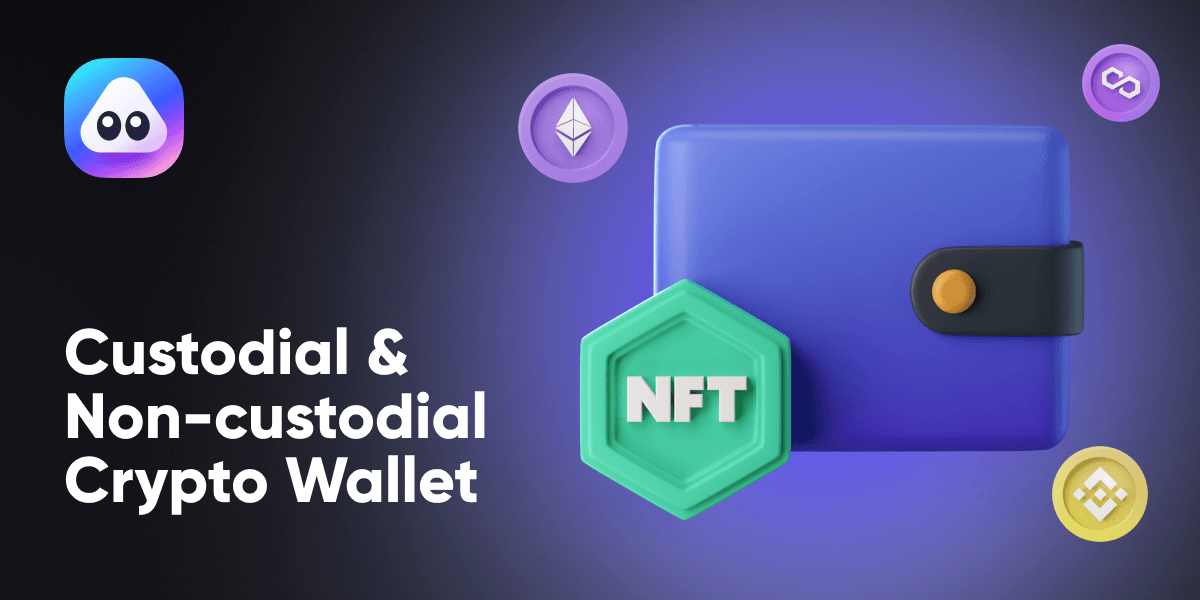
Choosing between a custodial crypto wallet and a non-custodial crypto wallet is critical when securing your cryptocurrency holdings. Some users prefer a custodial wallet, others prefer non-custodial wallets, and some end up using a combination of the two.
Nevertheless, non-custodial crypto wallets keep gaining traction as decentralized finance is growing. But how is a non-custodial wallet different from a custodial wallet, and why do most crypto users prefer non-custodial crypto wallets? Let’s find out together!
How are they different?
The main difference between a custodial crypto wallet and a non-custodial crypto wallet is “ownership.”
A non-custodial wallet enables users to have complete ownership of their cryptocurrencies, and as a user, you are the one who stores your private keys. The name derives from the fact that the wallet doesn’t have custody of your crypto assets but rather serves as an interface that enables you to easily and conveniently access it at all times.
On the other hand, a custodial wallet offers services that protect and store your cryptocurrencies for you. In other words, custodial wallets control your private keys and hold your cryptocurrencies in custody. If you don't mind a third party between you and your crypto, there are plenty of options for custodial wallet providers. Most companies providing custodial wallet services are well-known and established cryptocurrency exchanges.
Some of the best examples of custodial wallets include the Coinbase wallet, Binance wallet, BitMex wallet, Free wallet, and BitGo cryptocurrency wallet.
Benefits of a non-custodial crypto wallet
1. Complete control over private keys
The main reason non-custodial crypto wallets are gaining huge traction is that they offer users the ability to exercise greater control over who has access to their funds. The user retains complete control and ownership of their cryptocurrencies and has individual access to their funds. Users do not need to go to third-party providers to manage their funds or perform any related activities.
2. No KYC or any kind of verification process
Non-custodial wallets do not require documentation to trade or store crypto. In other words, as a user, you don't need to provide your ID or passport to use the wallet.
3. No transactions limitations
Most custodial wallets require you to wait anywhere from 24 hours to a few days for withdrawals to be processed. Regarding non-custodial wallets, transactions are usually unlimited in size or speed. No holding periods, and your crypto assets cannot be frozen or limited in any way, as is often the case with custodial wallets.
What are the best non-custodial wallets to store your crypto coins and NFTs?
Non-custodial crypto wallets to consider:
1. Trust Wallet
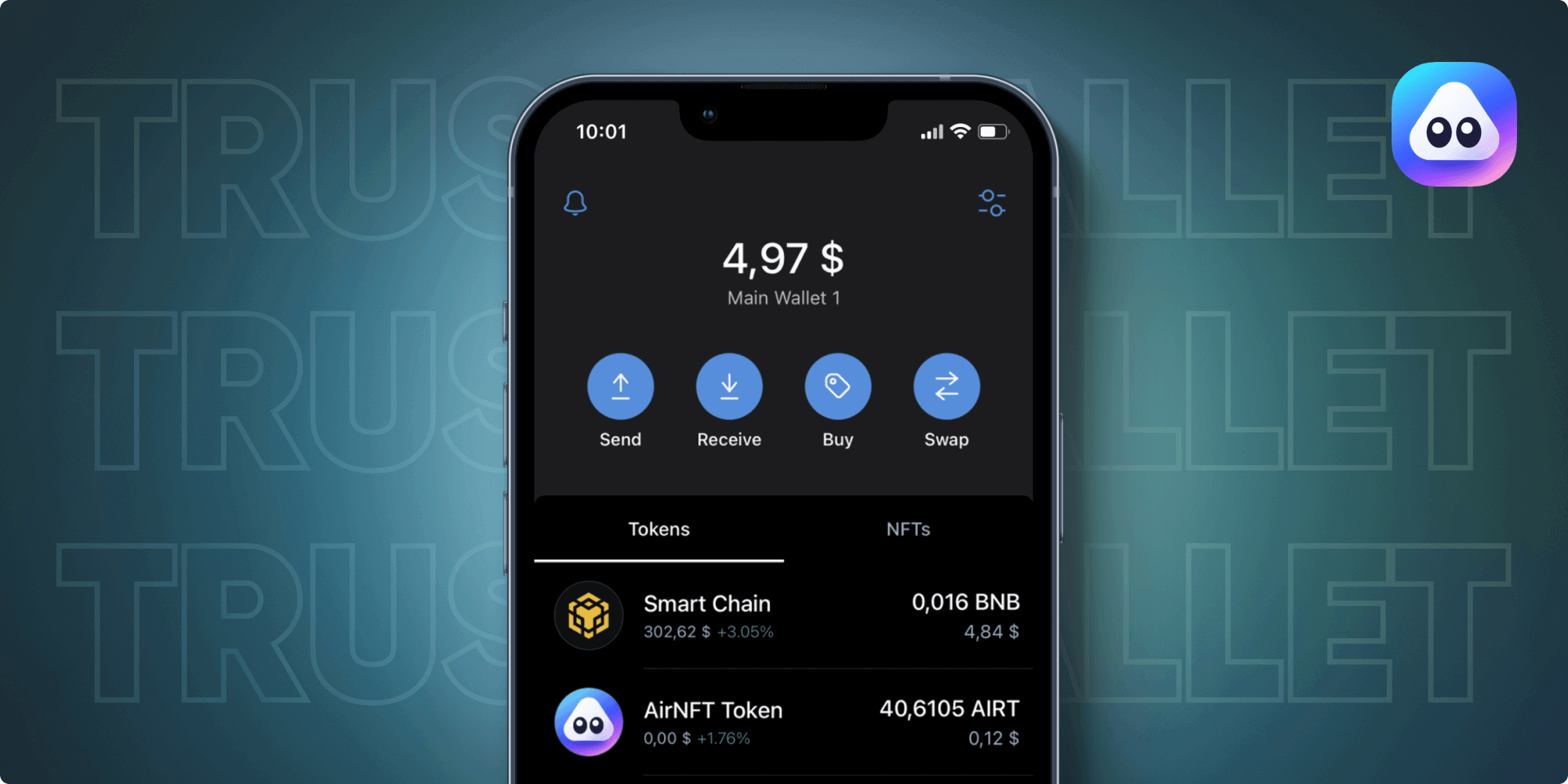
Trust Wallet is a diverse non-custodial cryptocurrency wallet, with support for over 1 million different cryptocurrencies across more than 50 blockchains. Previously only available on mobile devices, the Trust Wallet browser extension is now available with integrations with Binance Pay and Coinbase Pay. The new browser extension lets users send and receive crypto across all EVM chains and Solana. Through the app, Trust Wallet users can buy cryptocurrency, send and receive coins, and buy and sell NFTs.
If you're a beginner to cryptocurrencies or NFTs, Trust Wallet is a highly recommended option to get started.
2. Airnfts Wallet
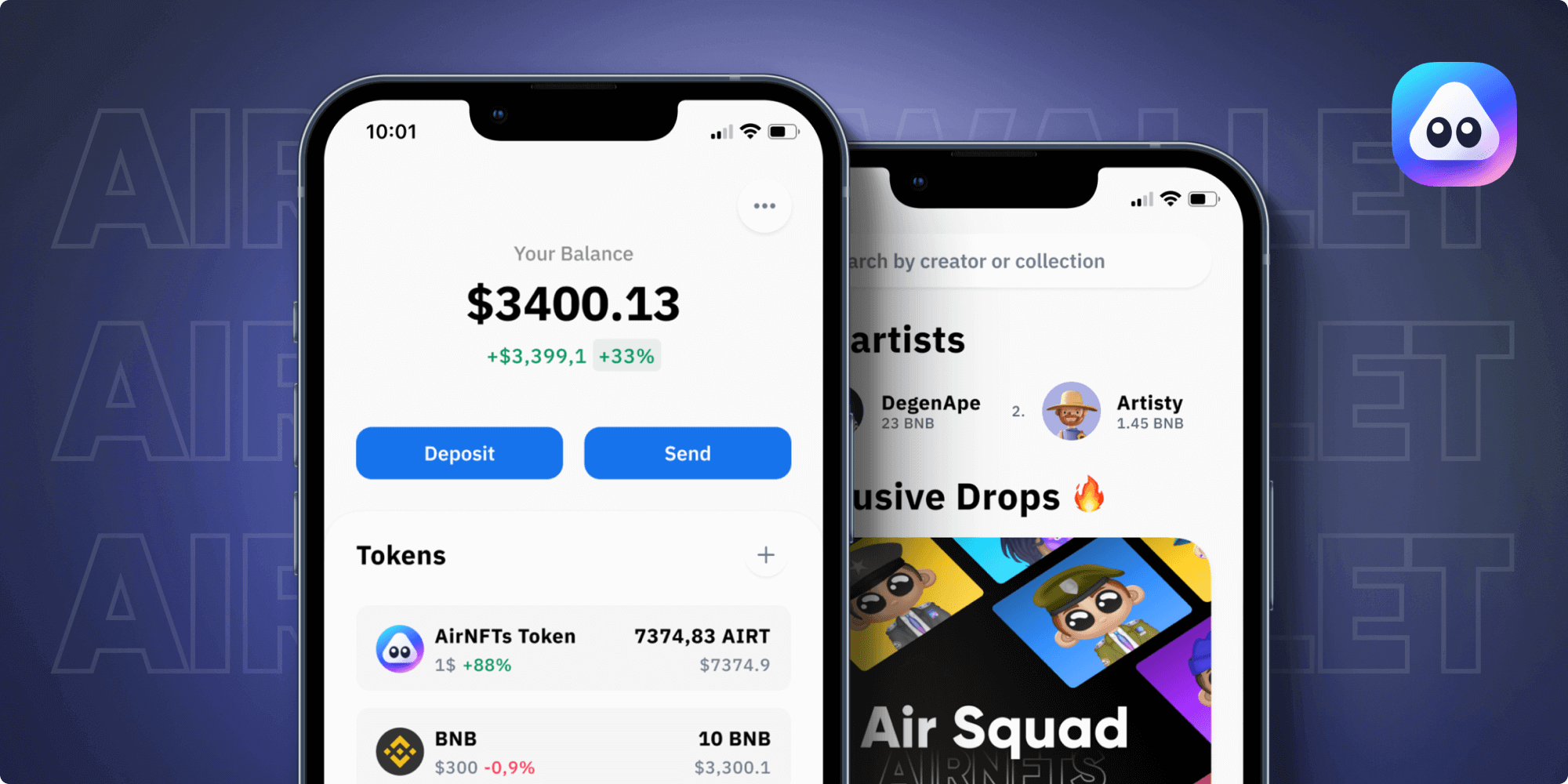
The AirNFTs crypto wallet will be entirely non-custodial and is currently in the works. It will support different cryptocurrencies such as Polygon (MATIC), Ethereum (ETH), Binance Smart Chain (BSC), and many other tokens that live on these networks. Unlike other wallets, it will have NFT support and enable users to mint and trade NFTs directly inside the wallet. Additionally, Airnfts wallet will not track user-sensitive information such as IP addresses or other private information.
3. Rainbow Wallet
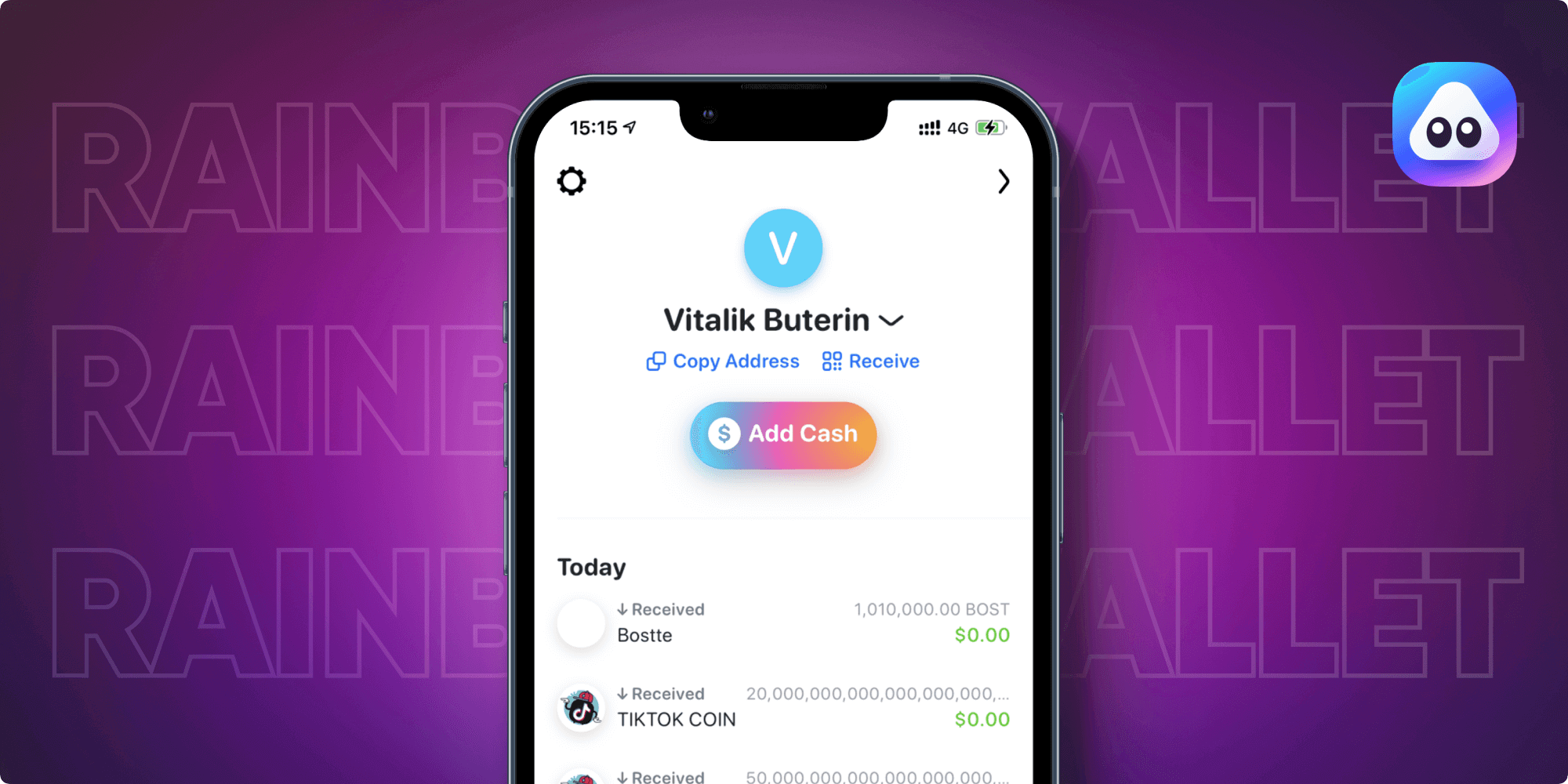
Rainbow is a mobile wallet for Ethereum, available on iOS and currently in public beta on Android. It is non-custodial, meaning you are in control of your private keys, thus your funds. It only supports Ethereum but shows the most important data of your NFTs, such as the floor price for collection and the NFTs you bought.
4. Gem Wallet
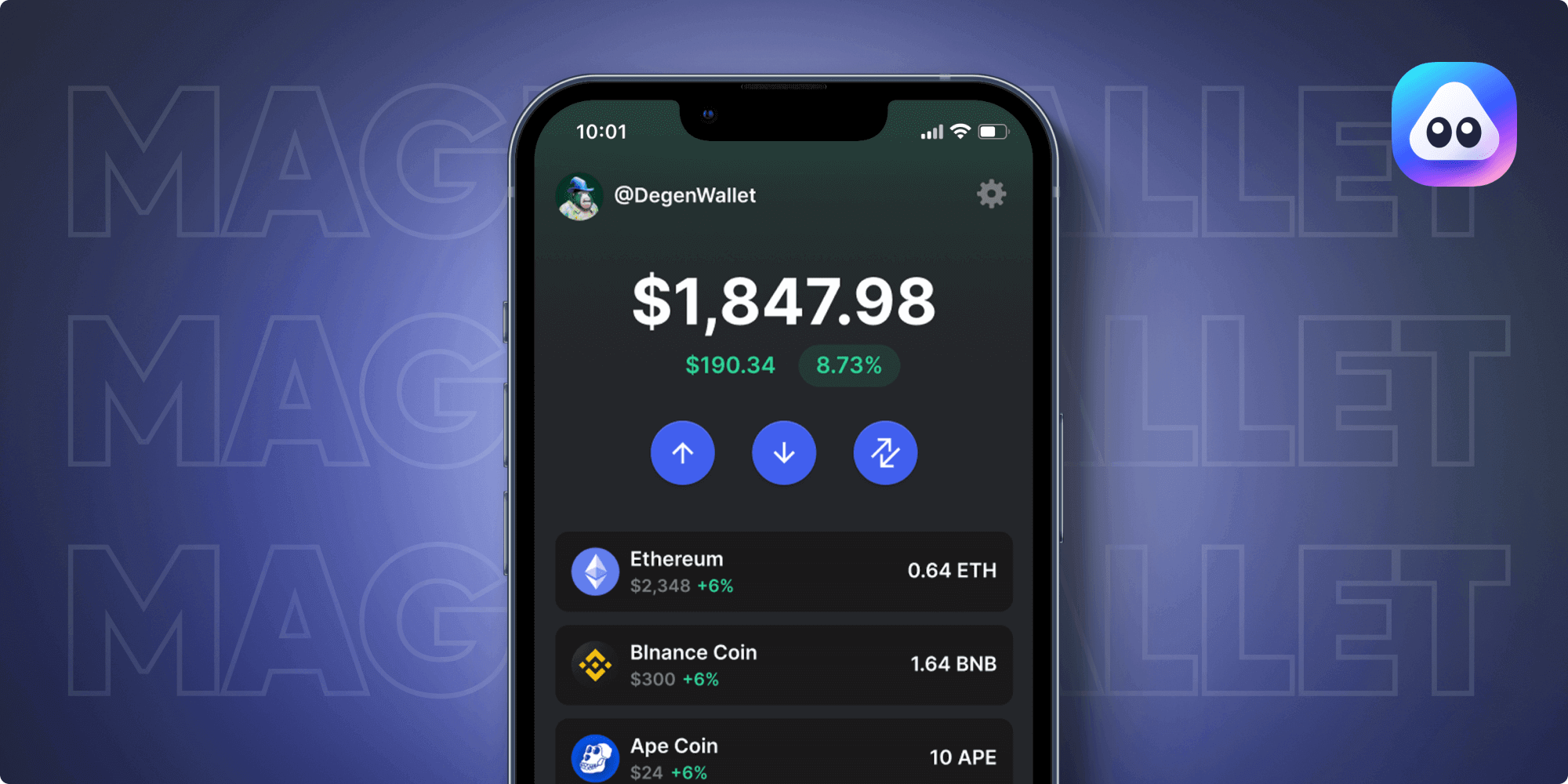
Gem Wallet is a non-custodial privacy and security focused crypto wallet app for digital assets such as BNB, ETH, BTC and other virtual commodities, and NFTs. You are solely in control of and responsible for your digital assets and private keys. Gem Wallet is an open-source wallet owned by the community.
5. Phantom Wallet

Phantom is the main digital wallet for the Solana blockchain and has the biggest Solana NFT support out of all wallets if you want to dive into Solana NFTs. Phantom is a hot, non-custodial crypto wallet: Hot wallets are online wallets connected to the internet, in contrast to cold wallets that are offline.
The takeaway on Custodial & Non-custodial crypto wallets
The choice between a non-custodial and a custodial crypto wallet depends mainly on which wallet features are most important to you. It all comes down to the question: do you want to take full ownership and control of your private keys and digital assets, or do you want someone else to do it for you?
Both types of wallets have pros and cons, so weigh your comfort level with the features that matter most to you before deciding.
Keep an eye on our blog and follow our socials for more updates.
